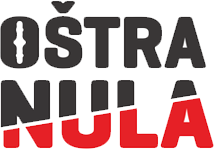There had to be a TV show in the past the task of which was to introduce the process of privatization more attractively. Words such as ”vouchers”, ”shares”, ”strategic privatization” and many more were on-air. At that time, those words were relatively (un)known and (in)comprehensible for those employed in formerly successful economic companies, factories, and institutions where the ”remnants” of the former socialist system were still visible while Capitalism impatiently ”knocked” at the door. Most of the abovementioned companies had prefixes ‘state-owned’ or ”owned by the government” that worked mostly for the sole reason of sustaining the process of production in already devastated and desolate companies. The loss was greater than the revenue, and the workers spent more time on the so-called stand-by mode than working. Salaries and other wages were a matter of past. Although unofficially controlled, another ”process” was developing before the eyes of the relicts of the former workers and citizens – the process of thriving crime and corruption.
Before we analyze the process of privatization of companies, plants, and factories in Banjaluka, here are several ”brief” remarks. It is said that Banjaluka used to be a ”powerful economic center with approximately 63 000 workpeople, with a developed economy, and a special industrial structure. Though memory is sometimes (un)truthful, those who are young can ascertain that Incel, for instance, used to employ around six thousand people. The Composite Organization of Associated Labor Rudi Čajevec ”swallowed” eight to ten thousand workers. When the rest of the companies and their employees, who were more than a thousand, is taken into consideration, the above mentioned does have some credibility. It should be added that numerous companies from service, craft, and trading sector existed in the city, which tells enough about the capacity with which the economy of Banjaluka entered the process of privatization. ”When workers from Čajevec got paid the whole city felt it. The whole trade and service sectors generated double or triple of the revenue. Every fourth family in Banjaluka was fed by Čajevec…was written in the Pravda newspaper owned by the Trade Union Development Organization ROS – Čajevec.
They say Čajevec was shut down without resistance. Most of the Incel property looks like a scary movie scene – the only part of this former chemical industry giant that still works is Celex which produces toiletries and tissues. Fruktona, Mljekara, Shoe Factory Bosna, Blik, 22. decembar, and Jelšingrad live only in our memories and it’s a matter of time when they will start to fade away. Tobacco Industry, which is one of many plants that somehow survived, practically doesn’t exist anymore, while Kosmos is fighting for its survival with the help of the government.
In the last few years, a considerable amount of time and documents, which were somehow ”eaten” by the privatization, have been spent to determine what happened with the companies in Banjaluka. When asked about it, the former workers of these companies say that the socialist giants couldn’t manage to adapt to the new economic trends and business. Still, they don’t hesitate to state a clear message – First, our companies and plants were robbed, then they were pushed into the process of privatization, after which, with the government’s blessing, they became an easy prey for the privatization and tycoon deals, not to mention that not many of the new owners paid off to restart production or the usual business. Generally, the main goals were to get their hands on attractive property and office places. Residential and business buildings were built at the site where former companies were located, while administration buildings are being used as private faculties and colleges, disco clubs, studios, wedding salons, furniture and appliances shops, and shopping malls with many shops and cafes.
After the milk has been spilled it was late to remove the pot from the stove – it was late to lament and claim that ”Banjaluka also suffered from the criminal privatization syndrome.” The well-known act of revising the privatization through the formation of the Privatization Audit Commission of the Republic of Srpska has proven to be a total failure. The Commission spent a fair amount of time and money only for the results to be reduced to statements that ”there was the basis for suspicion that, in certain aspects of privatization, there was illegality.” Needless to say that judicial authorities didn’t show much interest in inspecting that ”suspicion”, or that the workers of Čajevec tried to stop the privatization of their company 17 years ago. According to the available data, the first hearing after their lawsuit, on which they denied the privatization and demanded a ban on the sale of Čajevec’s property and capital, was held in 2011!?
The economists claim that in the end, the results of the privatization got reduced to a negligible financial effect, the existence of numerous scandals and that after the privatization, bankruptcy was the main way to cease operating businesses. According to certain sources, ((http://swot.ba/wordpress/privatizacija-u-banjaluci-katanci-otkazi-i- stecajevi) since the start of the cash sales of the state capital in the companies of Banjaluka, from 2000 until the end of 2014, 131 companies have been privatized, which is 70,81% of the total number of companies intended for privatization (185).
That there are many negative consequences of privatization is no secret. The economy doesn’t exist, the number of workers in manufacturing has been reduced, while the opposite has happened with the public and administrative sector. The status problem of workers who lost their jobs during the course of privatization is still unsolved. It is difficult to state the exact number of them but they are people that due to their age are not attractive to employers but are still young to retire. Nonetheless, a small number of ‘’the lucky ones’’ who formerly worked in the companies in Banjaluka managed to obtain miserable pensions. Those who didn’t, started their battle for existence on markets. They can often be found selling a ‘’wide range’’ of merchandise on the counters and, as they say, deal with ‘’legal smuggling’’. Sometimes they bring out badges, flags, pendants, or plaques of their former companies to interest some passionate collectors to buy them.



